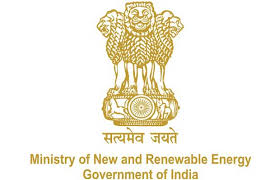
In Short : The National Green Hydrogen Mission (NGHM) aims to make India a global hub for green hydrogen production and export. With a target of 5 million metric tonnes annually by 2030, it focuses on using renewable energy for hydrogen production. The mission seeks to reduce fossil fuel dependence, lower carbon emissions, create jobs, and boost economic growth through green hydrogen initiatives.
In Detail : The Union Cabinet approved the National Green Hydrogen Mission on 4th January 2023, with an outlay of ₹ 19,744 crore. The overarching objective of the Mission is to make India a Global Hub for production, usage and export of Green Hydrogen and its derivatives, by targeting production of 5 MMT per annum of Green Hydrogen by 2030. The following components have been announced as part of the Mission:
- Facilitating demand creation through exports and domestic utilization;
- Strategic Interventions for Green Hydrogen Transition (SIGHT) programme, which includes incentives for manufacturing of electrolysers and production of green hydrogen;
- Pilot Projects for steel, mobility, shipping, decentralized energy applications, hydrogen production from biomass, hydrogen storage, etc.;
- Development of Green Hydrogen Hubs;
- Support for infrastructure development;
- Establishing a robust framework of regulations and standards;
- Research & Development programme including through a public-private partnership framework for R&D;
- Skill development programme; and
- Public awareness and outreach programme.
The National Green Hydrogen Mission has an outlay of ₹ 600 crore for the FY 2024 – 25 under various heads.
The Green Hydrogen production capacity envisaged by 2030 is likely to leverage over ₹8 lakh crore in total investments in the Green Hydrogen industry. This investment is estimated to create 6,00,000 jobs by 2030.
Green Hydrogen has the potential to replace the utilization of imported fossil fuels across various sectors including fertilizer production, petroleum refining, the mobility sector, steel production and shipping propulsion applications.
The Mission is expected to reduce a cumulative ₹ 1 lakh crore worth of fossil fuel imports by 2030.
This information was given by the Minister of New and Renewable Energy, Shri Pralhad Joshi in a written reply in the Lok Sabha today.













